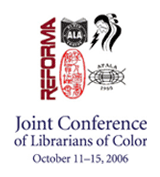Gilman makes four points about faculty in relation to librarians:
- Some faculty (I would say a lot of faculty) have no idea of the expertise librarians have. At the academic level, we often have one other masters' degree, some even a PhD as well as the MLS. In addition, some of us actually have teaching background, something that many faculty members may or not have depending on the field of study and whether anyone provided at least a teaching methods class at some point.
- Professors are territorial. The idea of sharing control of the class is not always welcome.
- Professors often assume students know the stuff about research already. Again, this is not news. The problem is getting the faculty to admit this. That some faculty may lack some knowledge in regards to research, since things change over time, adds to the problem.
- Professors don't want to give up "precious" class time to teach research. However, they end up giving i it up anyways when they have to teach basics of research after seeing less than stellar results on student work.
The article is definitely worth a look for both librarians and academic faculty. So, what are some of the suggestions? Gilman writes,
"So, if you are a teaching faculty member, why not respond to that librarian who e-mails you every fall with an offer to meet you and your students for research-education (or 'information literacy') sessions at the library and take him or her up on it?
Better yet, why not work with that librarian to develop one or more assignments for a grade that will enable your students to apply what they have learned while the library is still fresh in their minds? "
And as Gilman concludes, if you are a faculty member, you may learn a thing or two in the process as well. So go ahead, fill out that request for library instruction form, give your subject librarian a call, visit with your instruction librarian. Don't wait. We really can help your students succeed in your class and give them skills they can take with them to other classes as well.
